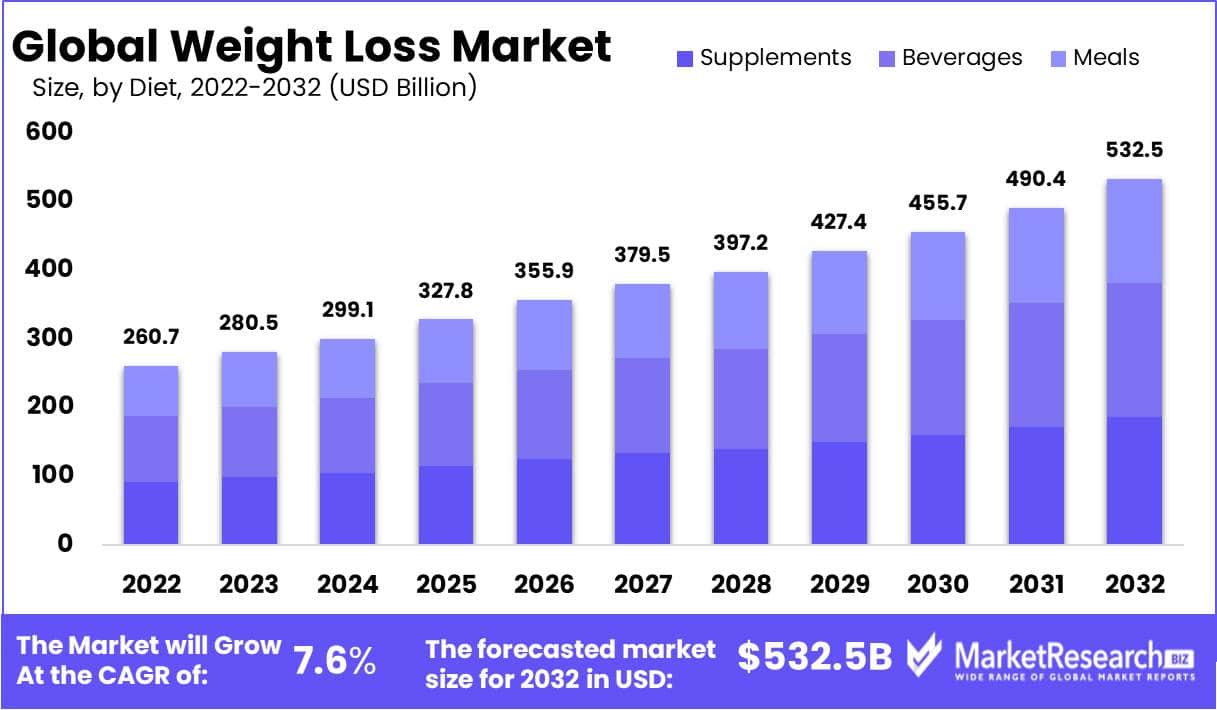Weight Loss Market Shift: WeightWatchers Bankruptcy And The Rise Of Pharmaceuticals

Table of Contents
The Decline of Traditional Weight Loss Programs
WeightWatchers' Bankruptcy and its Implications
WeightWatchers, once a household name in weight loss, has faced significant financial difficulties, reflecting a broader trend impacting traditional weight loss programs. This decline isn't solely WeightWatchers' story; many similar programs are experiencing similar challenges. Several factors contribute to this downward trend:
- Increased Competition: The weight loss market is fiercely competitive, with numerous apps, online programs, and personalized coaching services vying for market share. This increased competition has eroded the dominance of established brands.
- Changing Consumer Preferences: Consumers are increasingly seeking faster, more convenient solutions. Traditional programs, often requiring significant time commitment and lifestyle changes, are losing appeal to quicker fixes.
- Limited Long-Term Success Rates: A major drawback of many traditional weight loss programs is their low long-term success rate. Many individuals regain lost weight after completing the program, leading to dissatisfaction and a lack of sustained results.
Bullet points highlighting reasons for the decline of WeightWatchers and similar programs:
- Rising cost of membership versus perceived value.
- Lack of personalization; one-size-fits-all approaches fail to cater to individual needs.
- Effectiveness concerns and high relapse rates leading to customer churn.
- Shifting consumer focus towards quicker, more easily accessible solutions, including pharmaceuticals.
The Limitations of Traditional Dieting Methods
Restrictive diets, a cornerstone of many traditional weight loss programs, often prove unsustainable in the long run. These diets frequently lead to:
- Nutrient deficiencies: Severely limiting food groups can deprive the body of essential vitamins and minerals.
- Negative impact on mental health: The restrictive nature of these diets can lead to feelings of deprivation, anxiety, and even disordered eating patterns.
- Yo-yo dieting: The cycle of weight loss and regain, often associated with restrictive diets, can have negative impacts on metabolism and overall health.
Bullet points outlining the limitations of traditional dieting methods:
- Increased risk of nutritional deficiencies and metabolic imbalances.
- Negative impact on mental and emotional well-being, potentially leading to eating disorders.
- Focus on short-term weight loss rather than sustainable lifestyle changes.
The Rise of Pharmaceutical Weight Loss Solutions
The Growing Market for Weight Loss Drugs
The market for weight loss medications is experiencing explosive growth, largely driven by the increasing popularity of drugs like semaglutide. Several factors contribute to this surge:
- Effectiveness: Clinical trials show that these medications can lead to significant weight loss, often exceeding that achieved through traditional methods.
- Convenience: Compared to the time commitment required for traditional programs, medication offers a simpler, more convenient approach.
- Perceived Ease of Use: Many individuals find taking medication a more straightforward solution than making significant lifestyle changes.
Bullet points explaining the rise of pharmaceutical weight loss solutions:
- Increased research and development leading to more effective and safer drugs.
- Improved safety profiles and reduced side effects compared to older medications.
- Targeted marketing and advertising campaigns effectively reaching a broader audience.
The Science Behind Pharmaceutical Weight Loss
Weight loss medications work through various mechanisms, including appetite suppression and increased satiety. Semaglutide, for example, mimics a natural hormone that regulates appetite.
Bullet points describing the science behind pharmaceutical weight loss:
- Appetite suppression: reducing hunger pangs and cravings.
- Increased satiety: promoting feelings of fullness after eating smaller portions.
- Improved insulin sensitivity: assisting the body in better utilizing glucose.
Potential side effects and contraindications should be carefully considered and discussed with a healthcare professional.
The Future of the Weight Loss Market
A Hybrid Approach?
The future of weight loss may lie in a hybrid approach that combines traditional methods with pharmaceutical interventions. This approach would prioritize:
- Personalized weight management plans: Tailoring strategies to individual needs and preferences, considering factors like genetics, lifestyle, and medical history.
- Integrating medication with lifestyle changes: Combining medication with healthy eating habits, regular exercise, and stress management techniques.
Bullet points on a hybrid approach to weight loss:
- Combining medication with lifestyle changes for optimal and sustainable results.
- Tailoring treatment plans to individual needs and preferences for maximized effectiveness.
- The role of technology in personalized weight management, including apps and wearables.
Ethical Considerations and Potential Concerns
The increased use of weight loss medications raises important ethical and practical concerns:
- Accessibility and affordability: Ensuring that these medications are accessible and affordable for all individuals who could benefit from them.
- Long-term health effects: The long-term effects of these medications are still being studied, necessitating careful monitoring.
- Potential for misuse: The potential for misuse or over-reliance on medication needs to be addressed.
Bullet points highlighting ethical concerns surrounding pharmaceutical weight loss:
- Ensuring equitable access to effective treatments regardless of socioeconomic status.
- Careful monitoring for potential long-term side effects and unforeseen complications.
- Addressing the potential for misuse or dependence on medication for weight management.
Conclusion
The Weight Loss Market Shift is undeniable. The decline of traditional weight loss programs highlights a changing landscape, with pharmaceutical interventions playing an increasingly significant role. While these solutions offer promising results, important ethical and practical considerations must be addressed. The future likely involves personalized weight management plans that integrate traditional methods and pharmaceutical solutions. Understanding this Weight Loss Market Shift is crucial for individuals and industry players alike. Stay informed about the latest developments in the weight loss market to make the best choices for your health and well-being. Learn more about the weight loss market shift and find the right approach for you.

Featured Posts
-
 Harry Styles Devastated By Poor Snl Impression His Reaction
May 10, 2025
Harry Styles Devastated By Poor Snl Impression His Reaction
May 10, 2025 -
 Leon Draisaitls Stellar Season Hart Trophy Nomination And Oilers Success
May 10, 2025
Leon Draisaitls Stellar Season Hart Trophy Nomination And Oilers Success
May 10, 2025 -
 Navigating The Chinese Market Lessons From Bmw And Porsches Experiences
May 10, 2025
Navigating The Chinese Market Lessons From Bmw And Porsches Experiences
May 10, 2025 -
 Your Guide To The Nl Federal Election Candidates
May 10, 2025
Your Guide To The Nl Federal Election Candidates
May 10, 2025 -
 Uk Visa Restrictions Report On Potential Nationality Limits
May 10, 2025
Uk Visa Restrictions Report On Potential Nationality Limits
May 10, 2025
